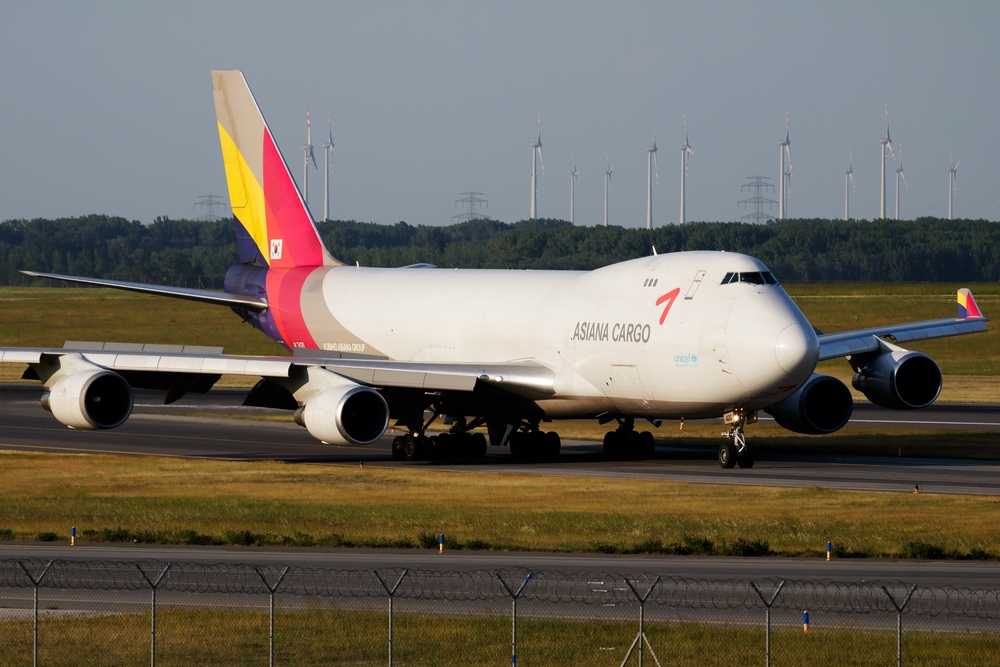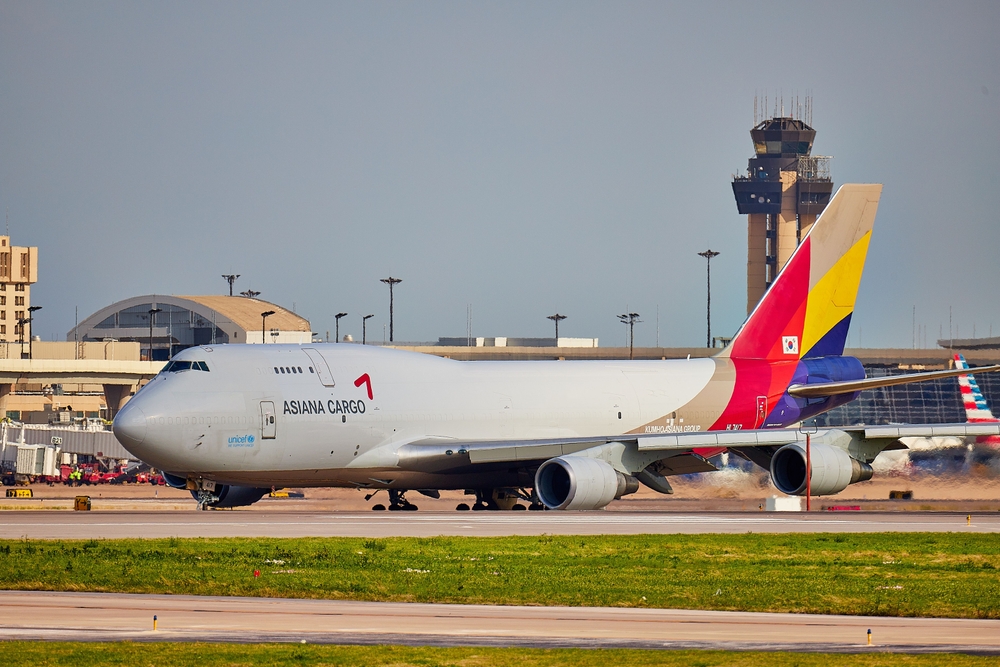Korean flag carrier Korean Air is beginning preparations for the sale of Asiana Airlines’ cargo division as part of the conditions for approval of the deal allowing Korean Air to take over its rival. The move follows Korean Air securing conditional approval from the European Union’s antitrust regulator for its merger with Asiana Airlines.
So far, four Korean low-cost carriers – Jeju Air, Eastar Jet, Air Premia, and Air Incheon – have been cited as possible candidates to acquire the cargo business. Jeju Air is part of Aekyung Group, while the other low-cost carriers (LCCs) have other major shareholders, namely VIG Partners for Eastar Jet, JC Partners for Air Premia, and Socius for Air Incheon.
According to sources in the investment banking and aviation sectors, Switzerland-based financial services firm UBS has been tasked with selling Asiana Airlines’ cargo division and has recently disseminated prospectuses and nondisclosure agreements to potential acquisition candidates. UBS reportedly intends to circulate the bid proposal shortly after securing nondisclosure agreements with companies potentially seeking the acquisition.
Interested parties are required to submit bid proposals by the end of February 2024, which must include detailed submissions relating to financing and business plans.

“The cargo business offers LCCs a strong strategic avenue for business expansion since it does not need in-flight passenger services that LCCs comparatively lack,” said Kim Sang-hyun, a professor at Korea Aerospace University speaking with The Korea Herald.
“They also have fewer constraints regarding slot allocation, since unlike passenger routes, freight routes operate during off-peak hours,” he added.
However, Kim stressed that the venture involves a considerable amount of initial investment costs, as establishing a local freight sales network and grounding facility for cargo handling is essential.
“Ultimately, freight customers and passengers occupy two distinct markets. Making the final selection of a qualified candidate should be a meticulous process as not all may be equipped to fulfill the necessary obligations,” he said.
Korean Air is expected to complete the process for the sale of Asiana Airlines’ cargo division by October 2024 at the latest. Subsequently, Korean Air will also need to receive final approval based on judgments on the eligibility of buyers from the EU.
About Asiana Cargo
Asiana Airlines’ cargo division currently operates a total of 11 dedicated cargo aircraft, including eight of its own freighters and three leased cargo aircraft. The division saw sales of 1.67 trillion won ($1.2 billion) in 2023, which accounted for 24.6 percent of Asiana’s total sales. The division handles a considerable volume of cargo transportation, amounting to 750,000 tons per year, making it the second-largest cargo handler in Korea.
Although the exact price is expected to be determined during the bidding process, industry analysts estimate an acquisition value of between 500 billion won ($375 million) and 700 billion won ($524 million) for Asiana Airlines’ cargo business.
Given the speed at which the process is expected to be run, Korean Air and Asiana representatives recently met with Asiana Cargo employees to tackle concerns about the sale. Led by Asiana Airlines’ CEO Won Yoo-seok, the session addressed concerns regarding post-merger employment succession and wage adjustments.
As for inquiries concerning employment changes following the sale of the cargo division specifically, management from Korean Air assured that they would strive to safeguard jobs and mitigate disadvantages through negotiation efforts, according to reports.

